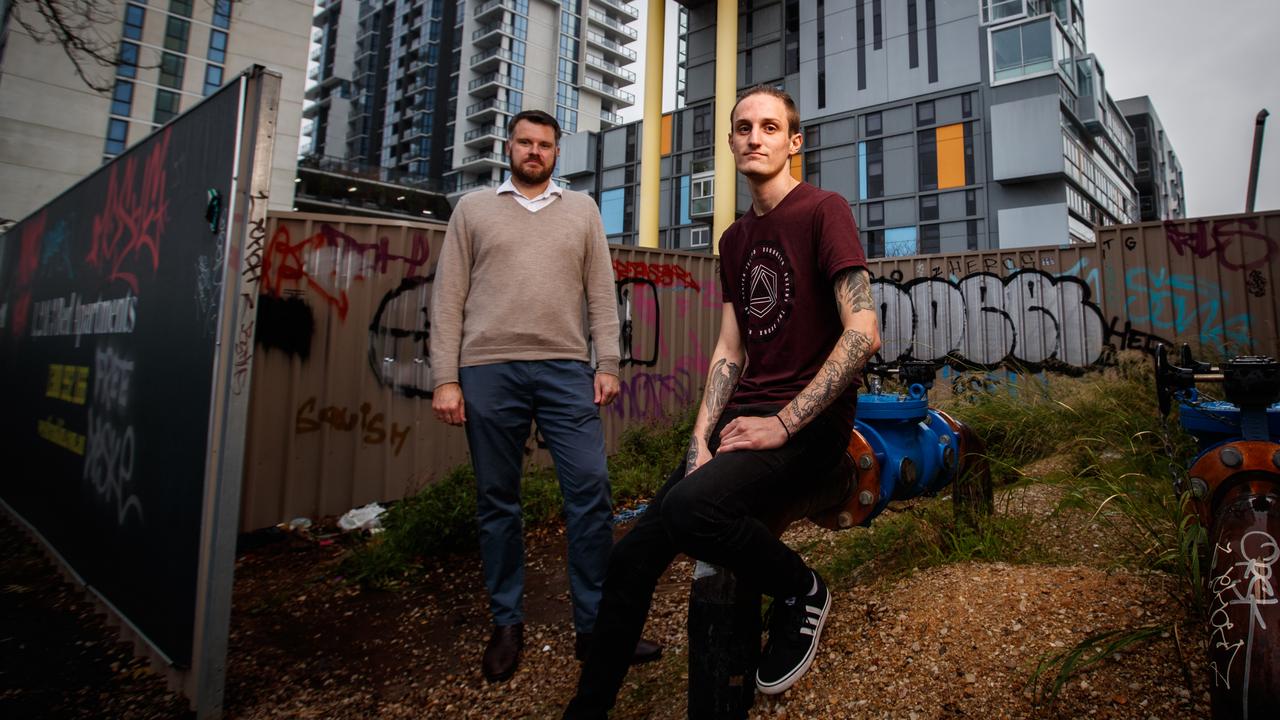The two Centre Alliance senators putting South Australia front and Centre
Unlike their departed leader Nick Xenophon, Centre Alliance senators are barely known outside Canberra. Yet, now they’re two of Australia’s most powerful politicians — so how will they wield their authority?
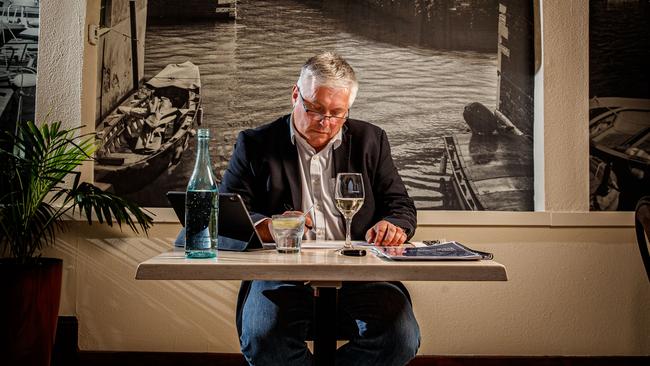
SA Weekend
Don't miss out on the headlines from SA Weekend. Followed categories will be added to My News.
In Adelaide’s East End a silver-haired, middle-aged man sits by himself, quietly enjoying a meal, thumbing through a thick pile of classified documents.
He lives nearby, but has cooked in his apartment on average once a year for the past five years.
Across town, another man and the love of his life have just finished cooking a meal in a house powered by solar panels and controlled by world-leading tech.
Once they’ve eaten they will settle on the couch and talk – before watching a foreign film on Netflix.
In the Adelaide Hills a woman and her husband listen to jazz while waiting for a slow cooked dinner made from produce the region is famous for. If the weather is decent the next day they will go fishing.
All of this happens on the rare occasions the three find a quiet moment away from Canberra’s Parliament House as members of Centre Alliance. All very different, the trio is now on the same path together.
The question is – and nobody wants to know more than Prime Minister Scott Morrison – what direction will that path take?
The problem for the government is that while there are only three in Centre Alliance, two of them – Rex Patrick, the man in the restaurant, and his colleague Stirling Griff, at home cooking – are South Australian senators in a chamber where their votes will sometimes be crucial.
In the House of Representatives their mate Rebekha Sharkie, the fishing fan, will again represent the voters of the Adelaide Hills-based seat of Mayo.
They have emerged from the ashes of the former Nick Xenophon Team as some of the most powerful politicians in the country.
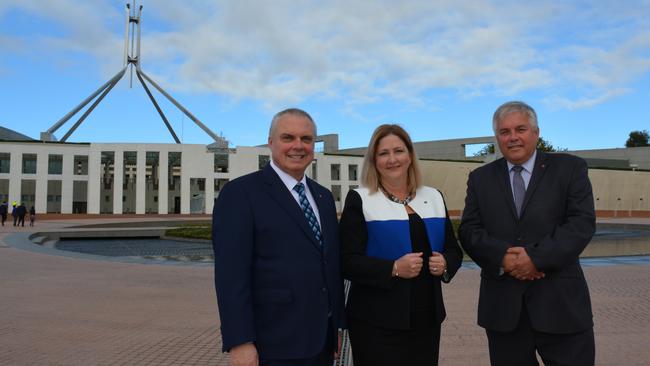
Xenophon was a once-in-a-lifetime politician who fused vaudeville showmanship with a ruthlessly pragmatic ability to insert himself at the heart of the state and national agenda.
But his bid to re-enter the South Australian parliament backfired leaving the trio without the profile most would argue is needed in modern politics.
Even so, in the last parliament the trio proved a handful for the Coalition – refusing to be bound by political conventions.
In true Xenophon fashion, Centre Alliance kept the government guessing.
They frustrated the Morrison government by supporting Labor and crossbenchers on a Medevac Bill that would make it easier for asylum seekers to get medical treatment.
The loss that handed the Coalition one of its most embarrassing moments on the floor of parliament – losing a vote on the floor of the House of Representatives – prompted calls for the Coalition to throw in the towel.
Equally, in the lead-up to the Federal Election, the trio frustrated the man most of Australia thought would be the next Treasurer, Chris Bowen, by campaigning against Labor’s franking credits and negative gearing policies.
They also took space the Greens were desperate to claim.
Before Instagram influencers and the world’s surfing fraternity were campaigning against drilling in the Great Australian Bight, Centre Alliance was taking up the fight.
They also frustrated the Coalition on the Murray Darling Basin Plan.

With a mantra to always consider issues in the context of what it means for South Australians, the trio are unpredictable at a time when the Coalition want certainty.
Morrison and his Treasurer Josh Frydenberg say they have a clear mandate to implement Coalition policy.
But Griff rejects that, saying the only true mandate is when voters give a single party control of both Houses. And that has not happened.
In cases where the Coalition do not have the support of Labor or the Greens, Centre Alliance will be an integral two of four votes the Government will need to get its legislation across the line.
Centre Alliance have already foreshadowed a wishlist that could prove challenging for the Government.
It includes a Royal Commission into the Murray Darling Basin, greater health transparency, IVF reform, a federal corruption commission, serious political donation reform, aged care improvements and significant improvements to the natural gas industry in Australia in a move that would help drive down power prices.
But despite Centre Alliance’s enthusiasm for the term ahead it is impossible to ignore the fact that a poor electoral showing in May’s federal election has started the clock on what could be the beginning of the end for the party.
Political players like Pauline Hanson and Clive Palmer have been able to generate the publicity and the cash to compete hard in the modern political landscape where Australians are looking for something other than the two major parties.
Without the profile – or the cash – how do Centre Alliance remain relevant?
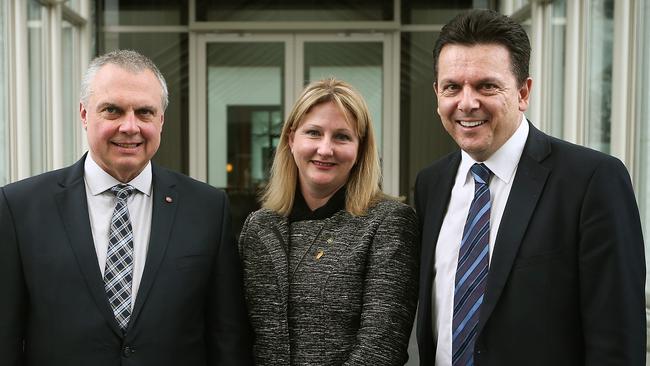
They know they face testing times. Patrick is the newest member of the party, going from policy adviser to his boss’s replacement in December 2017, when Xenophon announced his state parliament aspirations.
“I am not a career politician,” Patrick says, from his two-bedroom apartment in the city’s East End.
“I never thought I would be a Senator. My approach to life is to just do the job you are doing and do it well.”
He does not watch television. He has no Netflix. The last film he watched at home was the latest Mission: Impossible film but he fell asleep after 10 minutes. He reads, but never fiction.
In his apartment is a large wooden table with bench seats for dining, two leather couches, a television cabinet and coffee table topped with a chess board.
Pictures of his two daughters, who live with his former wife, Carly, in Sydney, adorn the walls and top of the bookshelf.
“Carly and I are good friends. It has not been a hostile breakup. We focus on the girls. She is a great mum,” he says.
“In Sydney I use to go to work at six in the morning and got home at eight at night. That was the problem. It was a blokey thing. I thought it was my job to make sure we had a house and all of those sorts of things. So it is my fault.
“Once I was separated I was spending more time with my daughters than when I was married. In that sense it turned out good. If I have the girls now I tend to stop.”
On his kitchen table sits a copy of Control of Government Action – Test Cases and Commentary, a thick softcover that focuses on the different roles played by courts, tribunals, ombudsmen and other review bodies in Australia.
“It is my favourite book,” he says.
“All the way through you will see it is underlined and dog eared.” Other books in his collection are dominated by consistent themes: political manipulation, the law, submarines and defence.
“If I did not enjoy it people would think that it was very sad. But I love what I do. I get a real buzz out of it.”
He does not expect perfection from government. He often tells constituents their demands for perfection are not feasible.
Quoting an aphorism, commonly attributed to Voltaire, he says: “Perfect is the enemy of the good.
“I try to stop people taking on the world.”
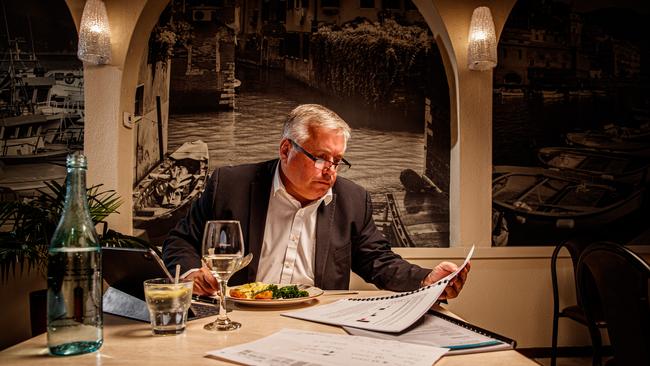
Born in New Zealand, Patrick moved to Australia as a seven-year-old growing up in what he describes as “the great steel city of Whyalla” as the youngest of four children.
He left as a 16-year-old to join the Royal Australian Navy where he trained as an electronic technician and volunteered for submarine service.
He served on several Oberon-class submarines before being selected and posted as a member of the trials crew of the first Collins-class at Osborne.
After more than a decade in the Navy, he left to work for a sonar company before forming his own business in 2007 in the area of sonar and acoustics training.
He started writing for defence trade magazines.
“I was concerned that we were going to go down a pathway of trying to design our submarines. I thought that was a risky pathway. I started advocating for a European design to be built here in Australia,” he says.
The Defence Department did not like what Patrick was saying. “I was training submariners at the time in acoustics, sonar, and they cancelled my contract,” he says.
The articles caught the attention of the Liberals Defence spokesman David Johnston whom Patrick started helping on a voluntary basis. “When he became the Defence Minister he asked me to become his naval adviser,” Patrick says.
He declined. Patrick’s business was doing well. He was also concerned about how new Prime Minister Tony Abbott’s government was going to operate.
“You had basically Peta Credlin (Abbott’s chief of staff) running every office, trying to run the country from one office,” he says.
“That’s not the way you do things. You get good people and let them do their job. I could see it was not for me.”
Patrick then started to help Nick Xenophon out – free of charge, before ending up on the payroll. The background explains his passion for the defence sector and veterans affairs. But another run-in with the government fuelled his passion for greater government accountability.
“The way you think is a product of all your experiences. At one stage I got into a bit of a fight with the government.”
That is an understatement. It is against the law for SAWeekend to reveal details of the case. But, in short, the Federal Government spent $635,000 in legal fees, over four years from 2014, to fight Patrick over a $6000 issue. They gave up in the end.
“I am happy to say I took on government. But I just wore them down.” It is a skill set he takes into the Senate chamber.
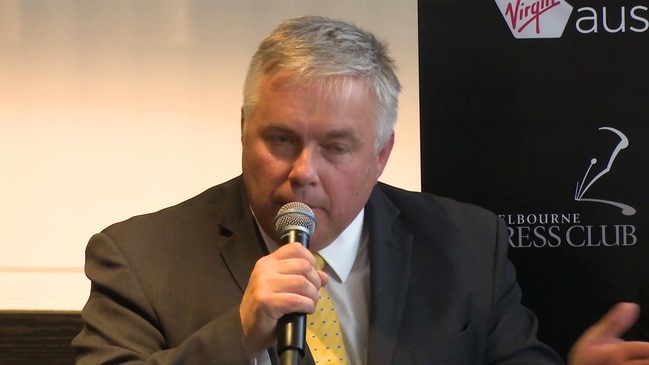
Griff lives in Adelaide’s inner southern suburbs with Kristin, his wife of 18 years. He has four children aged between 19 and 34.
At 30, his mother Vilma found herself alone with a 2½-year-old to raise “at a time women were only paid half of what men earned for the same work,” Griff told parliament during his maiden speech.
His heritage had been beset with hard times. One half of his family came to Australia from Ireland. The other half, from Lithuania, left during a time when the country was part of Russia. They were Jewish and targeted for their faith and ethnicity.
In their homeland they endured pogroms and forced exile under Russian rule during World War I before being killed by the Nazis in World War II.
To help his mum, Griff, a Glenelg North public primary school grade four student, launched his first business by importing crystal radio sets and selling them to classmates.
Like Patrick, he left school when he was aged 16.
He worked at a bank before moving into radio sales, publishing and advertising. He built and ran a telemarketing and retail consulting business, and developed business software products.
He has a fondness for new and emerging technologies. Instead of Spotify or Apple Music he uses the Norwegian streaming service Tidal because it has the highest quality streaming you can get.
Griff wakes at about 4.30am and starts most days with a five or six kilometre walk. “Walking is an important part of my life to clear the head and focus my day,” he says.
He’s known Xenophon for 20 years and describes him as a friend. The relationship started when Griff was the head of the SA Retailer Traders Association that shared Xenophon’s disapproval of deregulating the state’s electricity assets.
“We knew the sell-off of the assets would result in higher electricity prices – which it has,” he says.
The pair also worked on shopping trading hours, because South Australia did not have seven-day trading.
Griff says Xenophon’s interest in the small business sector and retail meant that the pair kept in touch.
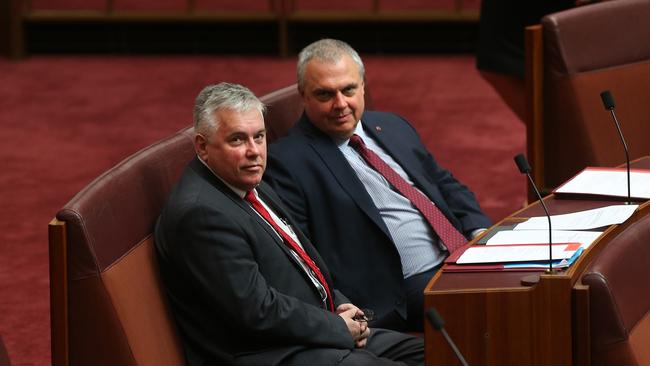
That all changed in the lead-up to the 2013 election when Griff, who had just sold a bunch of mobile phone retail businesses found himself with a staff member, an office and some time on his hands.
A lot of the volunteers who had supported Xenophon’s run for the Senate in 2007 had deserted him over his support for marriage equality. Griff put the infrastructure together to run a campaign with three full- time staff and a handful of volunteers.
“And he achieved the highest polling result of any MP in Australia’s history,” Griff said. “It was not me, it was Nick that made it happen but without the processes in place it wouldn’t have been as effective as it was.”
On polling night it looked like Griff, who had run on the Senate ticket to ensure the party could be above the line with the party name, was at one point declared elected by the ABC before preferences started to flow.
“As a result of that we made the decision to run as a full party, with candidates in every seat to make it work in our own right so Nick had the numbers to get key reforms through,” Griff says.
He had achieved an enormous amount of really good stuff in his 20 years in parliament but the majority of it had been achieved by getting out in the media, bringing up these key issues and, as a result of that, changes happened.
“What he didn’t achieve in doing was being able to have the numbers to get legislation through vote-wise,” Griff says.
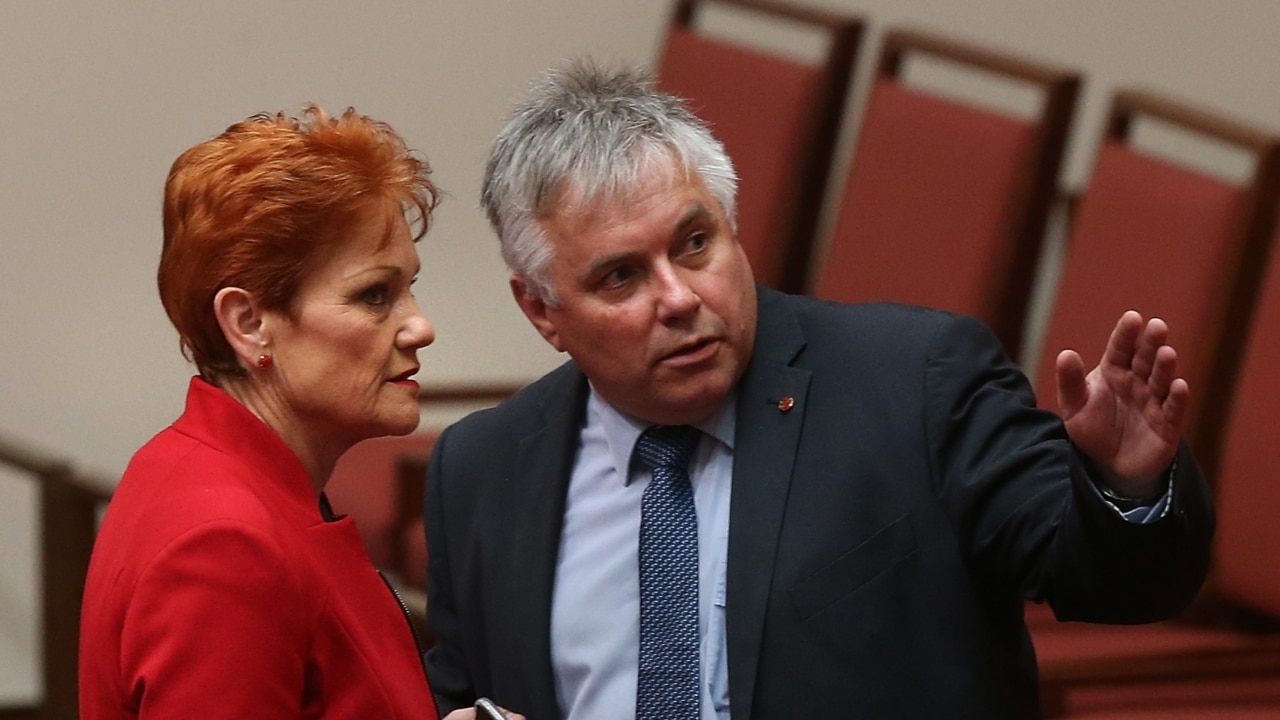
In 2016, the party got Rebekha Sharkie into the seat of Mayo.
Griff and Skye Kakoschke-Moore joined Xenophon in the Senate. But Kakoschke-Moore resigned in November 2017 during the parliamentary eligibility crisis, following her realisation that she was a dual citizen.
Around Griff’s office are signs reinforcing what the party is about.
It is the criteria he wants staff to remember when reviewing legislation, policy positions and ideas. Will it enhance the wellbeing of South Australians? Bring positive change to SA? Ensure SA’s interests are protected?
A list of “achievements” from the last term of parliament highlights the challenge facing the Coalition, which will be left guessing over what Centre Alliance will support, since they bounce across the political spectrum.
The trio have focused on topics important for SA from shipbuilding to the Murray Darling Basin, Great Australian Bight and a controversial nuclear waste dump in the Outback.
They take credit for securing an apprenticeship mentoring program, road funding, Gonski school money and an automotive innovation fund.
They list a Proton Therapy Centre, a SA cancer genomics program, aged care inquiries, fee transparency reporting and an IVF transparency Bill as wins.
The party helped secure Carly’s Law, which provides protection for young people from online predators, supported the controversial Medevac Bill, blocked a “punitive citizenship test”, outlawed non-consensual intimate image sharing and secured a ban on synthetic lotteries in Australia.
But despite what the party boasts as achievements, the most recent Federal Election was a serious reality check.
Polling beforehand showed that without the Xenophon connection they were struggling for votes. But even a public endorsement from the former leader was not enough.
A full-page advertisement with Xenophon’s endorsement did not cut through during an election campaign awash with the bright yellow advertisements of Clive Palmer’s United Australia Party aimed at capturing the anti-major party vote.
“We have a fraction of the money that we have had in the past,” Griff says. “It was always going to be tough.”
Griff suspects the party spent about $200,000 while the major parties would have spent $5m-$10m each and “Palmer would have spent way more than that”, possibly more than $30m.
The upshot was Centre Alliance did not win extra seats – its support dropped. In the Senate where Kakoschke-Moore was the lead candidate, the party copped a 19 per cent swing in group ticket voting. The SA-based Centre Alliance got less votes in the Senate than Queensland parties Pauline Hanson’s One Nation and Palmer’s UAP.
On those numbers Griff and Patrick would not be returned when Australians go to the polls in three years time.
It is hard to imagine that it has not crossed Sharkie’s mind to go her own way and leave the other two behind.
Her participation in an Independents Day social media video during the election campaign – backed by No Fibs, an organisation whose founder Margot Kingston is a longtime campaigner against Liberal governments and promoting the virtues of independent candidates – raised eyebrows.
Sharkie dismisses the suggestion she could leave.
“We all have the freedom right now to vote, if we feel very strongly on issue, separately,” she says.
“We give each other that freedom. It would be like cutting off an arm if we did not have them (Griff and Patrick).”
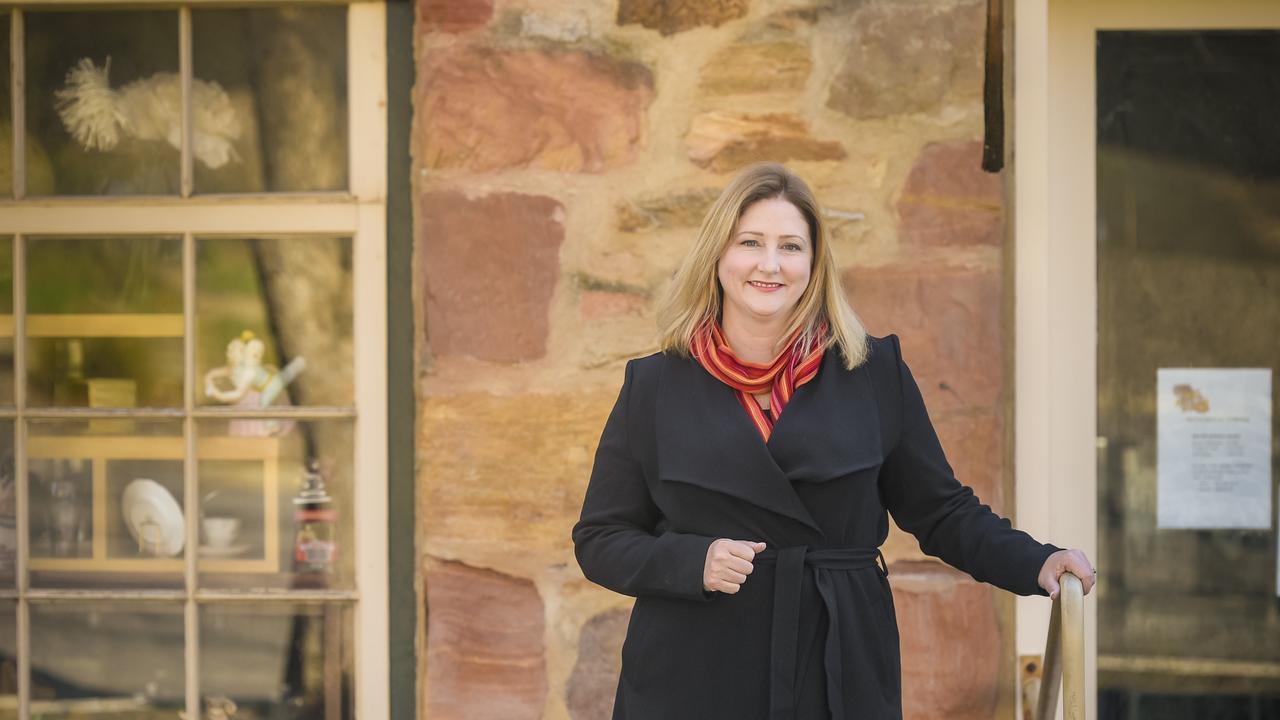
Sharkie, as a former staffer to Liberal Federal MP for Mayo Jamie Briggs, and then State Opposition leader Isobel Redmond, has a deeper knowledge of the major party system than her colleagues. She knows Griff and Patrick, and Centre Alliance, are different.
“One of the best things working with the two is that we don’t take ourselves too seriously. But we work together really well.”
Sharkie says there are a lot of egos in Parliament House, but “I don’t think Centre Alliance has them. We are quiet achievers. We work hard together. We don’t grandstand.”
In the major parties, individual members are hamstrung, she says. “At this election one in four people gave their vote to someone outside the major parties and I think that is because people want to be represented by a member not a party necessarily.”
When Xenophon was asked to discuss the party, he provided a short statement. “While I’m no longer involved in politics, Centre Alliance’s three members of parliament – Rebekha, Rex and Stirling – are all doing outstanding work for SA and holding the Government to account. I continue to wish them well, and their influence in Canberra, as a force for good for SA, should never be underestimated.”
The trio are not entirely on the same page about the best way forward. Patrick, and in part Sharkie, clearly see more media exposure as crucial to the party surviving.
Patrick says in the past the party would often work quietly to achieve an objective. “That has not worked for us,” he says. “We will still work in the background but we have to be a bit louder. Nick was a fantastic mentor and his success was largely centred around his media skills. I saw how all of that worked. And that experience will now help me now that we have changed gears.”
The challenge is to have an impact. “Government is like a big concrete ball rolling down the hill,” Patrick says.
“You can push it and push it and push it and it will change one degree. Or you can stand in front of it and get squashed. When you fight government, my view is that you cannot fight on their terms. You have to be nimble. It is a David and Goliath battle.”
Do they ever ask themselves: What would Nick do?
Griff says no but they do consider Xenophon’s legacy – to look after SA’s interests, ensure transparent and accountable government, and progress issues and ideas that can benefit the community.
“And that is what we are following,” he says. “With just less flair for stunts.”


